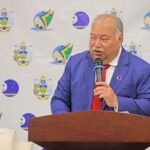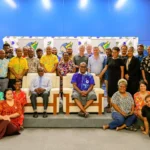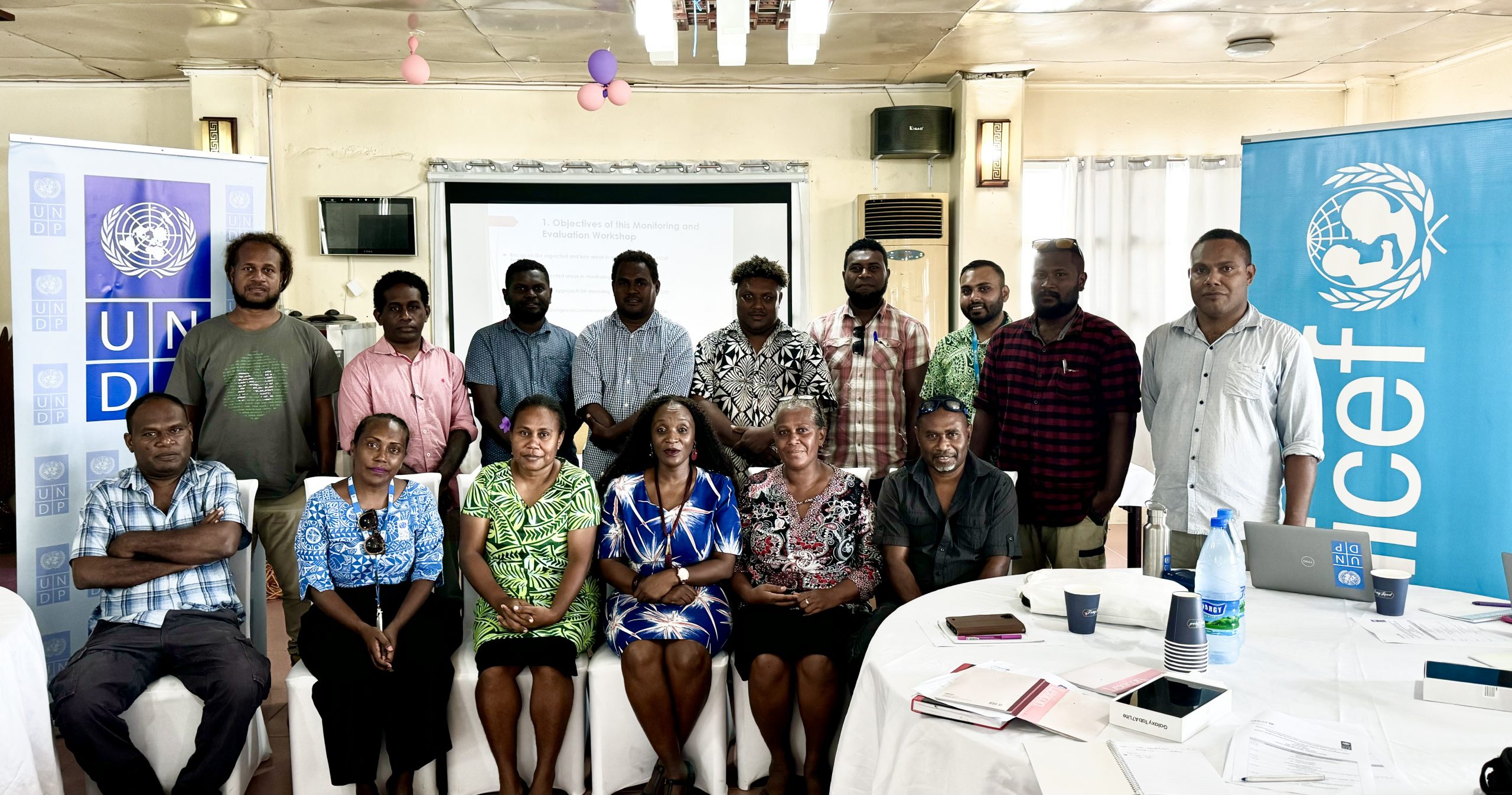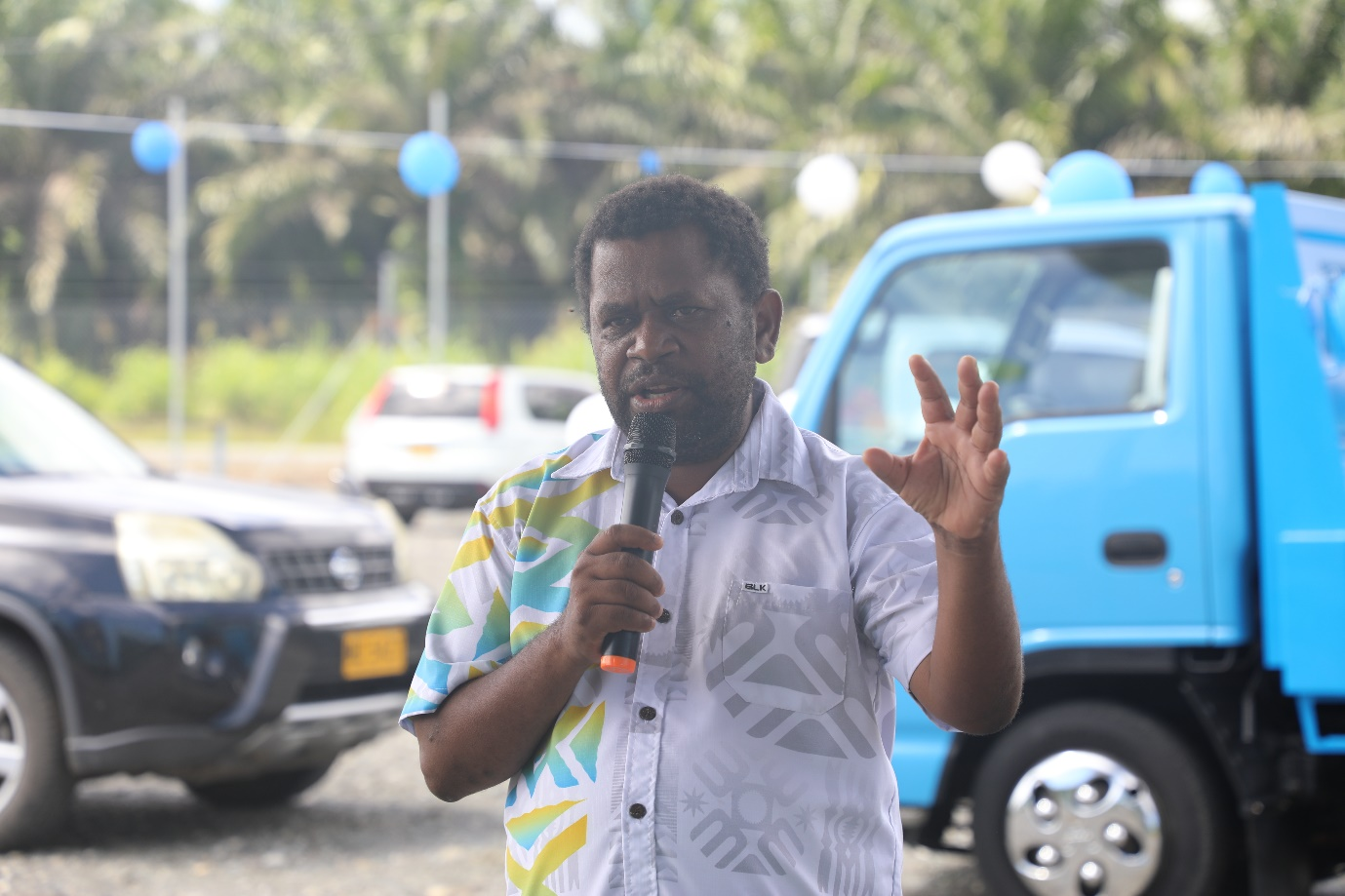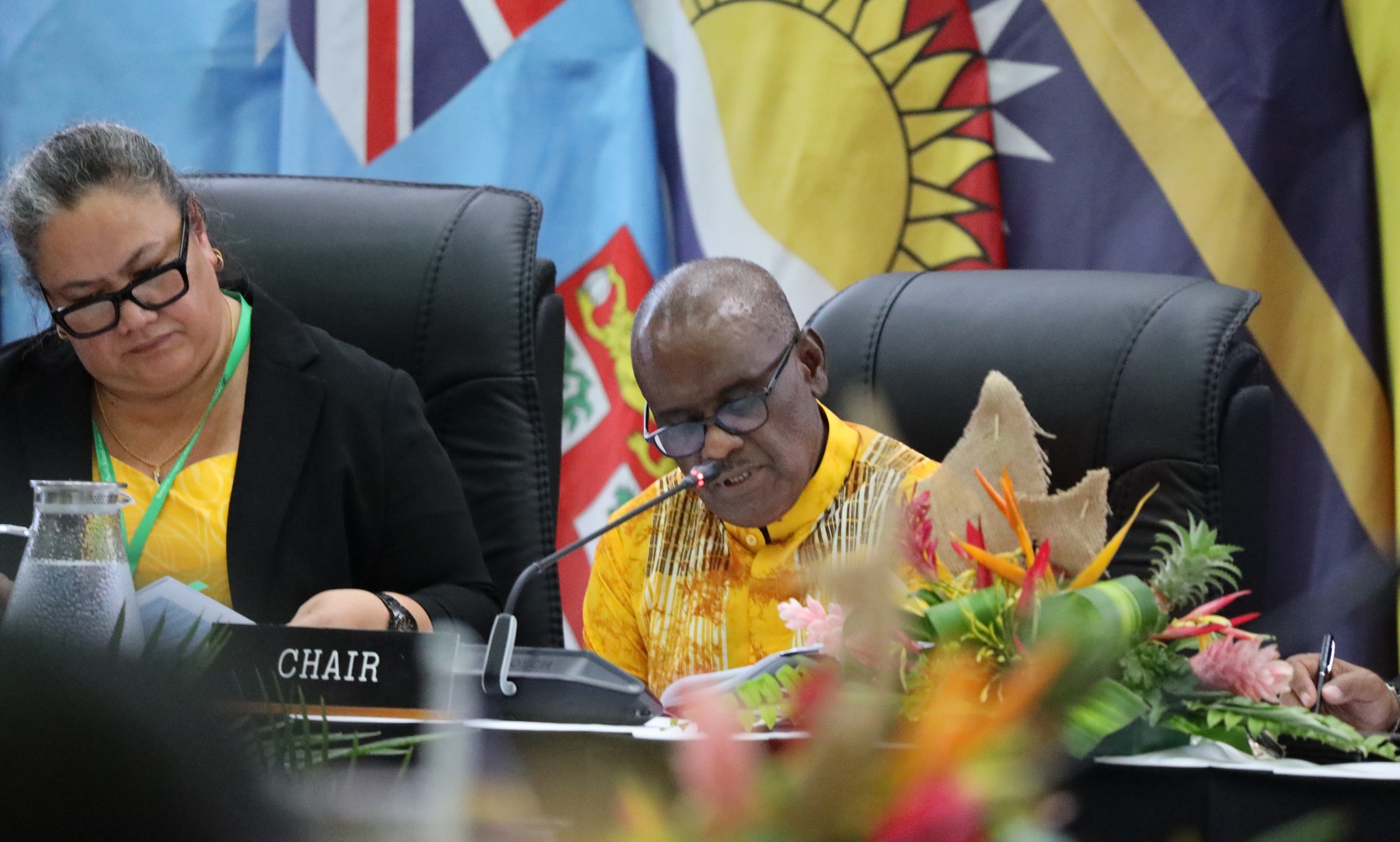Group photo of participants and organizers with UNDP M&E Officer and UNICEF WASH Specialist who led the training.
THE United Nations Development Programme in collaboration with the Ministry of Provincial Governance and Institutional Strengthening (MPGIS) and the United Nations Children’s Fund successfully concluded a comprehensive weeklong training on Monitoring and Evaluation (M&E) and strengthening the capacity of provincial government officers in designing, budgeting, planning, and implementing high-quality WASH (Water, Sanitation, and Hygiene) programs.
The training, held from May 13 to May 17, 2024, in Honiara, brought together key technical staff from 6 provincial governments: Guadalcanal, Central, Western, Temotu, Choiseul and Isabel, for intensive training sessions focused on how to better monitor and evaluate project results of the European Union funded Provincial Governments and Service Delivery Project, implemented by UNICEF and UNDP with the objective of enhancing the efficiency and effectiveness of health and education service delivery at provincial level.
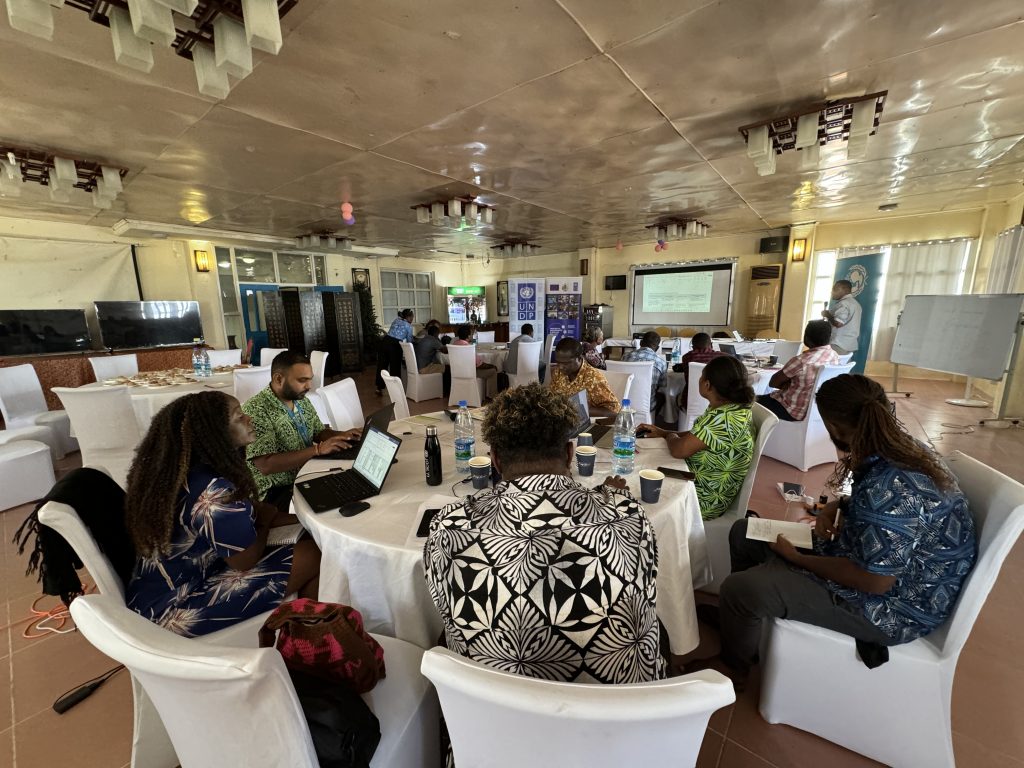
Daddley Lyn Meloma, M&E Officer for PGSD project at UNDP Solomon Islands, highlighted the importance of the workshop, stating, “Effective monitoring and evaluation are critical for the success of any project. This workshop is providing provincial technical officers with the necessary tools and skills to ensure that programs are not only implemented efficiently but also deliver sustainable and impactful results for our communities around the country.”
The workshop addressed the challenges faced in M&E implementation due to limited resources, technical capacity gaps, and methodological complexities. Participants engaged in sessions that covered the fundamentals of M&E, updated methods and tools, data collection techniques, and the utilization of M&E findings to enhance project performance and accountability.
Abigail Tevera, WASH Specialist from UNICEF Solomon Islands, emphasized the importance of developing and implementing high-quality WASH programs: “focusing on needs assessment and proper targeting ensures that the most disadvantaged and vulnerable populations receive the support they truly need. By building the capacity of technical officers, we empower them to design, plan, budget, and implement WASH programs more efficiently, making a real difference in the lives of children, their families, and their communities.”
The workshop also included hands-on training, allowing participants to apply various tools such as the Problem Tree to identify issues in the WASH sector (WASH in communities, WASH in schools and health care facilities) and the Theory of Change Framework to establish how proposed WASH strategies are expected to lead to specific development changes, based on casual analysis and available evidence. This practical approach ensured that attendees could directly translate their learning into actionable strategies for their respective provinces. Key areas covered included needs assessment, program design, budgeting, planning, monitoring and evaluation, quality assurance, and leveraging alternative financing mechanisms for social services.
Adrian Toni, Monitoring and Evaluation Specialist from the Ministry of Provincial Government and Institutional Strengthening (MPGIS), reflected on the workshop’s impact: “This training has been an invaluable experience for all of us. The knowledge and skills gained here will significantly improve our ability to deliver better data regarding the projects we are implementing and eventually will revert in improved services. We are now better equipped to ensure that this program and other future ones are not only effectively monitored and evaluated but becoming also more sustainable, gender balanced and resilient to the challenges posed by climate change.”
The workshop underscored the critical role of the Provincial Governments and Service Delivery project in building the capacity of the MPGIS and the provincial governments officer paving the way for more effective and accountable service delivery, and ultimately contributing to the well-being and local development of communities across the Solomon Islands.
UNDP PRESS









